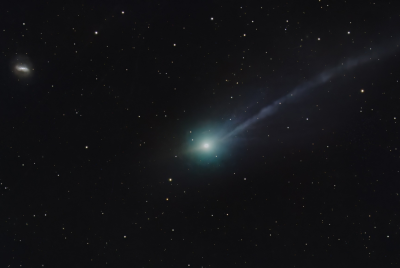The largest prime number ever has just been discovered and its a whopping 23,249,425 digits long
Called the M77232917, the largest prime number is the 50th Mersenne prime to be discovered.

The largest ever prime number, which is a whopping 23,249,425 digits long, has just been discovered. Called the M77232917, the new prime number belongs to the special group, the Mersenne prime numbers, and is the 50<sup>th Mersenne prime to have been discovered.
The new prime number was found by multiplying 77,232,917 twos and then subtracting one. It has over a million more digits than the previous record-breaking prime number, which was discovered in January 2016.
This new prime number was found on 26 December 2017 by the Great Internet Mersenne Prime Search (GIMPS) — a collaborative project that enlists volunteers' computers across the world. However, it took four different software programmes running on four different hardware configurations to verify the discovery.
Mersenne prime numbers, named after the 17th century French monk Marin Mersenne, are divisible only by themselves and one. The larger the prime number, the more challenging it is to find, especially given that there is no particular pattern to their distribution.
"I'm very surprised it was found this quickly; we expected it to take longer," Chris Caldwell, a professor of mathematics who runs a website on the largest prime numbers at the University of Tennessee, said, as quoted by The Guardian. "It's like finding dead cats on the road. You don't expect to find two so close to one another."
It took a number-crunching computer — owned by Jonathan Pace, an electrical engineer from Germantown, Tennessee — six days of non-stop computing to find the M 232917. The find reportedly made Pace eligible for a $3,000 (£2,215) award.
ScienceAlert reported that the new prime number is so large that it would stretch out to around 118km at two digits per centimeter or it would take around 9,000 pages to write it down or print it out.
"I'm really happy for the whole organisation and the guy who found it. He'd been searching for 14 years, so he's worked as hard as I have," said Curtis Cooper, a professor of mathematics at the University of Central Missouri, who found the previous record-breaking prime number in 2016.
The M77232917 can be downloaded here.






















